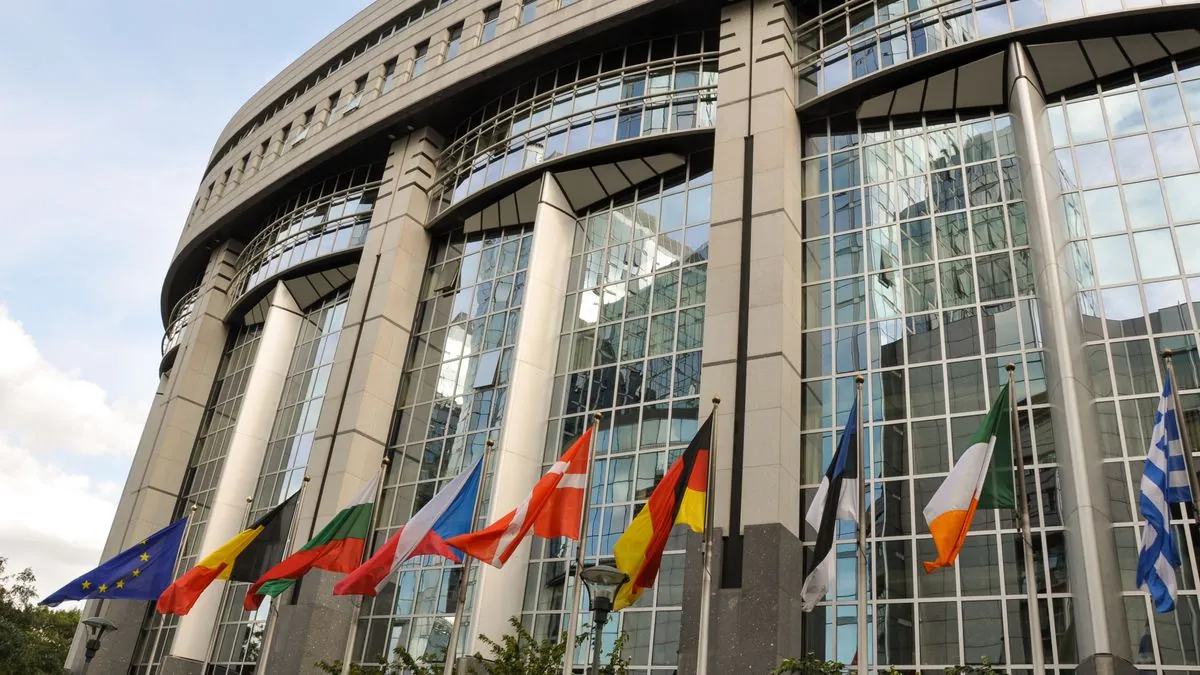EU's Future: Economic Stagnation and Global Pressures Threaten Bloc's Influence
The European Union faces economic stagnation and external pressures, potentially weakening its global influence. Despite proposed reforms, political and financial obstacles hinder implementation, leaving the bloc's future uncertain.

The European Union, once a beacon of peace and prosperity in post-World War II Europe, now faces significant challenges that threaten its future influence and stability. As the bloc approaches its 31st anniversary since its founding in 1993, it grapples with economic stagnation and increasing pressure from global powers.
Economic growth within the EU has been sluggish, with productivity increasing by a mere 0.7% annually since 2015. This stagnation, coupled with a declining working-age population, poses a significant threat to the bloc's economic vitality. The EU's single market, once a cornerstone of its economic strength, now requires revitalization to maintain its global competitiveness.
External pressures further compound the EU's challenges. Russia poses a military threat, particularly in light of its ongoing conflict with Ukraine. Meanwhile, China and the United States present commercial challenges as their economies outpace the EU's growth. The potential return of Donald Trump to the US presidency in the upcoming November 2024 election could exacerbate these pressures, given his past rhetoric on international trade and alliances.
To address these issues, former European Central Bank chief Mario Draghi has proposed a comprehensive plan for EU revitalization. His blueprint calls for an annual investment of 800 billion euros, focusing on clean technology, artificial intelligence, and defense capabilities. Draghi also advocates for a more unified approach to economic statecraft and improvements to the EU's single market and governance structures.

However, implementing these reforms faces significant obstacles. Political conditions within the EU are not conducive to such ambitious changes, with key member states like Germany and France experiencing weak leadership. The rise of far-right and far-left parties in various member states further complicates the political landscape.
Financial constraints also pose a challenge to Draghi's proposed investments. Many EU countries, including France and Italy, are already burdened with high levels of debt. Germany's strict borrowing laws further limit the bloc's financial flexibility.
Despite these challenges, there are potential positive scenarios for the EU's future. The upcoming German federal elections in 2025 could result in a government more open to reform. A victory for Kamala Harris in the US presidential election might ease international tensions. Additionally, China's economic challenges and demographic shifts could potentially reduce its global influence.
The EU's future remains uncertain, balancing between potential decline and the possibility of renewed strength. As the bloc navigates these challenges, it must leverage its unique strengths, such as its Nobel Peace Prize-winning legacy, its space program managed by the European Space Agency, and its position as the world's largest donor of development aid. The coming years will be crucial in determining whether the EU can maintain its global influence and continue to provide peace and prosperity for its 27 member states.


































